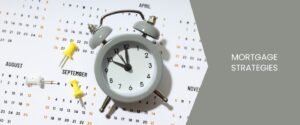What’s Considered “Bad Credit”?
First, it’s helpful to understand what “bad credit” means. Credit scores range from 300 to 850, and most lenders consider anything below 580 as poor or bad credit. If your score falls between 580 and 620, you’re in a “fair” range, but you may still face challenges when applying for a mortgage.
5 Options for Buying a Home with Bad Credit
1. FHA Loans – A Popular Choice for Low Credit Scores
FHA (Federal Housing Administration) loans are one of the best options for buyers with bad credit. They allow borrowers with credit scores as low as 500 to qualify, though a higher down payment may be required.
Minimum score of 500-579 requires at least a 10% down payment.
Minimum score of 580+ allows you to put down as little as 3.5%.
FHA loans are more forgiving of past financial missteps, making them an excellent choice if your credit history isn’t spotless.
2. VA Loans – Great for Veterans and Active Duty Service Members
If you’re a veteran, active duty service member, or eligible spouse, a VA loan may be an option. VA loans don’t have a strict minimum credit score requirement, though most lenders prefer a score of 580-620 or higher.
No down payment required
No private mortgage insurance (PMI)
Flexible underwriting, making it easier to qualify
3. USDA Loans – For Rural and Suburban Homebuyers
USDA (United States Department of Agriculture) loans are designed to help people buy homes in eligible rural and suburban areas. While the USDA doesn’t have a strict minimum credit score, most lenders look for a score of at least 640. However, exceptions may be made for borrowers with lower scores if they have strong compensating factors, such as a solid rental history.
No down payment required
Low mortgage insurance costs
Ideal for buyers in designated rural areas
4. Consider a Co-Signer to Strengthen Your Application
If your credit is shaky, having a co-signer with good credit can boost your chances of approval. A co-signer agrees to take on the financial responsibility if you’re unable to make payments, giving lenders more confidence in approving the loan.
5. Explore Non-QM (Non-Qualified Mortgage) Loans
Non-QM loans are designed for borrowers who may not fit the traditional lending criteria. These loans may have more flexible underwriting guidelines, making them accessible to buyers with lower credit scores, self-employed individuals, or those with unique income situations.
Higher interest rates and fees may apply
Requires a larger down payment in some cases
Tips to Improve Your Approval Chances
Save for a Bigger Down Payment – A larger down payment reduces the lender’s risk, making them more likely to approve your loan. Aim for at least 10% if your credit score is below 580.
Work on Improving Your Credit – Pay down debts, make on-time payments, and dispute any errors on your credit report. Even small improvements can boost your score and help you qualify for better loan terms.
Show Stable Income and Low DTI (Debt-to-Income) Ratio – Lenders want to see consistent income and a manageable amount of debt compared to your earnings. Aim for a DTI ratio below 43%.
Common Questions About Buying a Home with Bad Credit
Q: Will I have to pay a higher interest rate with bad credit?
Yes, lower credit scores often mean higher interest rates, but refinancing later after improving your credit can help lower your rate.
Q: Can I qualify for down payment assistance with bad credit?
Some down payment assistance programs accept lower credit scores, especially if paired with FHA or VA loans.
Q: How long should I wait to apply after bankruptcy or foreclosure?
FHA and VA loans may allow you to apply as soon as 2 years after a bankruptcy or 3 years after a foreclosure, while conventional loans typically require a longer waiting period.
Final Thoughts: You’re Closer Than You Think!
Buying a home with bad credit may feel overwhelming, but with the right loan program and a solid game plan, homeownership can still be within reach. Explore your options, work on improving your financial profile, and don’t hesitate to connect with a trusted mortgage professional who can guide you through the process.
Ready to explore your homebuying options? If you’re unsure where to start or need guidance through the mortgage process, I’m here to help! Contact me today to discuss your specific situation, and let’s work together to make your dream of homeownership a reality, no matter your credit score!




